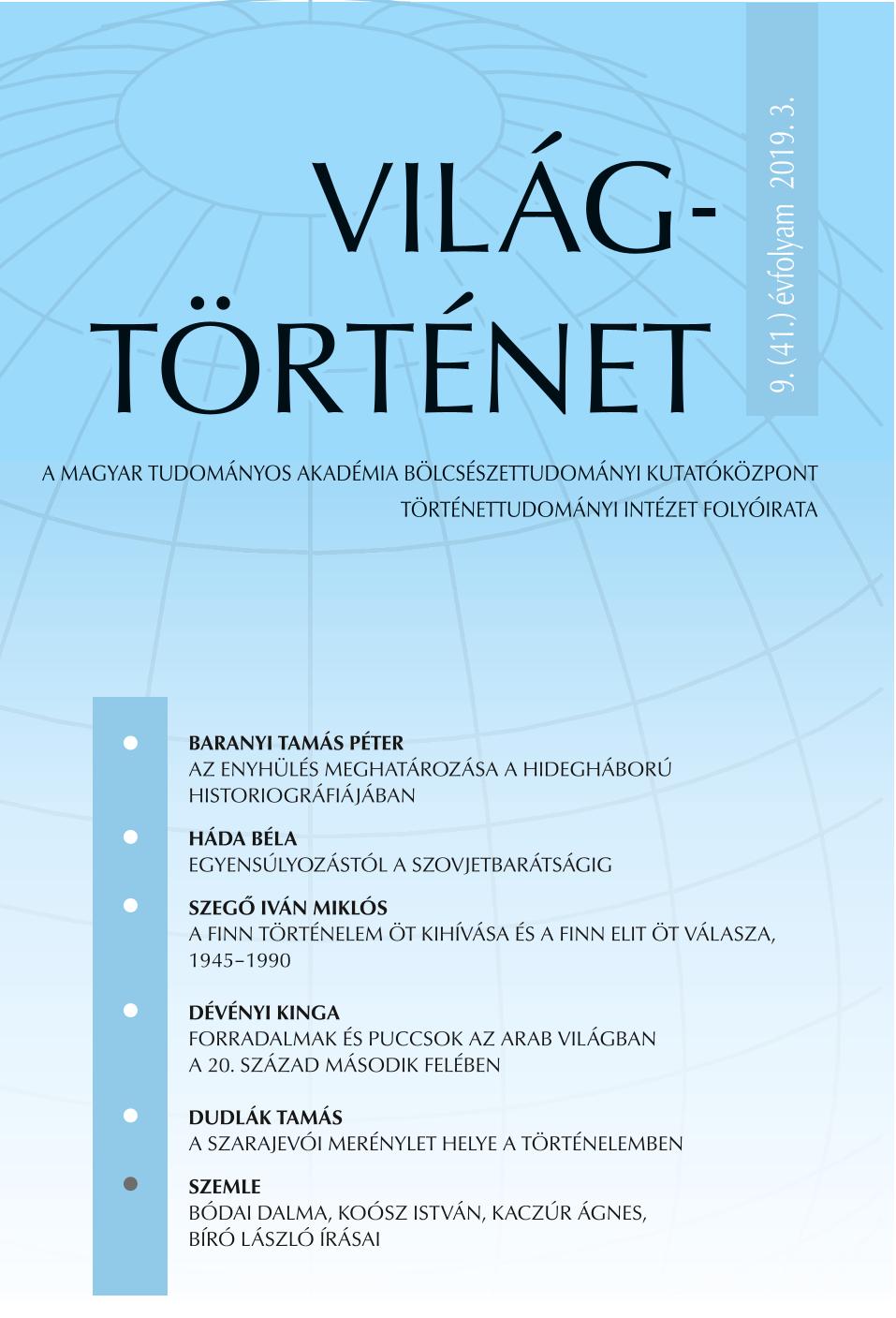Egyensúlyozástól a szovjetbarátságig. India szuperhatalmakkal szembeni politikájának evolúciója, 1947–1971
From Balancing to Pro-Soviet Orientation. The Evolution of India’s Policy Towards the Superpowers, 1947–1971
Author(s): Béla HádaSubject(s): Post-War period (1950 - 1989)
Published by: Magyar Tudományos Akadémia Bölcsészettudományi Kutatóközpont Történettudományi Intézet
Summary/Abstract: Since the decolonization of South Asia, India is one of the most remarkable actors in the international relations. In the beginnings of its independent history, the South Asian country did not want to be a part of the Cold War confrontations. The first Prime Minister, Jawaharlal Nehru declared the doctrine of positive neutrality and non-violent foreign and security policy. In his point of view, the rivalry of the superpowers was one of the most dangerous processes of the world and undesirable phenomenon in the wider region. After its experiences on the great and superpowers’ South Asia policies and the 1962 border conflict with China, the Indian government, however, decided to search for a strong supporter of its security, territorial integrity and international position. Finally, India became the ally of the Soviet Union with the 1971 Friendship Treaty. Nevertheless, it maintained its strategic autonomy as well. This study offers an overview of the historical background and important milestones of this process.
Journal: Világtörténet
- Issue Year: 2019
- Issue No: 3
- Page Range: 357-388
- Page Count: 32
- Language: Hungarian

